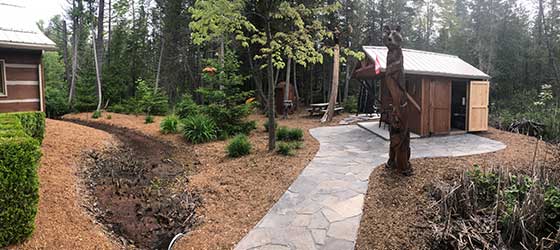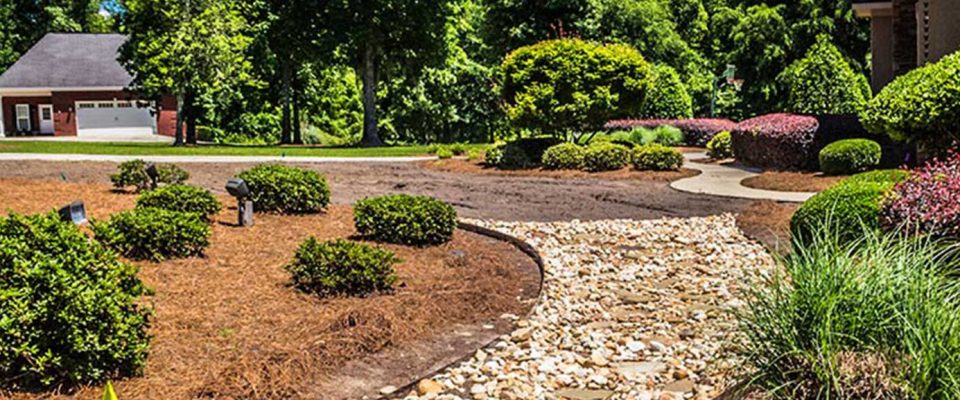
Cedar mulch is a natural and sustainably-sourced material that adds a beautiful finishing touch to your garden and is packed with benefits for your plants and soil.
Sustainability
Cedar trees are hardy and fast growing in comparison to other tree species and proper cutting or “thinning” of trees can promote future growth. The regeneration of trees promotes the intake of carbon dioxide and release of oxygen creating a happy, healthy forest. A properly managed forest allows cedar trees to grow to their full height and width, avoiding tree crowding that results in many small trees that can’t be easily harvested again. Unlike man-made products, wood decomposes and provides nutrients to the ground, making cedar products a long-lasting and environmentally friendly choice.
Hayes Timber Inc. manufactures cedar posts for fencing and uses the bark peeled from the posts to grind into mulch. This, along with cut-offs from saw mills and unusable trees are blended together to create our rich cedar mulch product. By using the by-product from our posts we ensure that there is very little waste from the production of our products.
The benefits
Like many wood and bark mulches, cedar much provides excellent coverage in your garden beds that greatly reduces weeds by blocking the sun from reaching the soil. A thick layer of cedar mulch at the beginning of the growing season can help give your plants a head start over pesky weeds.
As a natural barrier, cedar mulch helps provide nutrients to the soil below by retaining moisture and keeping the temperature moderate throughout hot and cold spells. By reducing the evaporation of surface water, you’ll likely have to water your plants less often. This layer of protection helps insulate plants from heat, but also protects plant roots from the cold during fall and winter.
Unlike other mulch products, cedar is a natural insect repellent making it an ideal choice for trails or around your gardens and trees. Termites, mosquitoes, moths and even cockroaches avoid the natural oils found in cedar. Luckily, a decomposing mulch is a nice home for earthworms who aid in the balance of healthy soil. People also find the smell of cedar so delightful that it’s often found in essential oils, candles and cleaning products. Add some cedar mulch to your garden and you’ll enjoy lovely aromas throughout the summer.
For plants that need a consistent pH level in soil, cedar is known to have little affect on this. If you’re looking to reduce the acidity of soil, try a pine mulch instead.
Mulching tips:
- Use a thick enough layer to block out the sun — we suggest 3” of mulch in an even layer
- Always create a space between a tree trunk or shrub. Don’t push mulch into the base of a tree or it will hold moisture and encourage rot.
- Fluff your cedar once a month to maintain a consistent colour and allow moisture to reach the soil. Cedar mulch will go grey and condense over time if left alone.
- Consider replenishing cedar mulch after a season or two to maintain a rich colour and smell.
- To control weeds even further, spray a weed treatment or apply a garden mesh to the area before you lay down your mulch.

